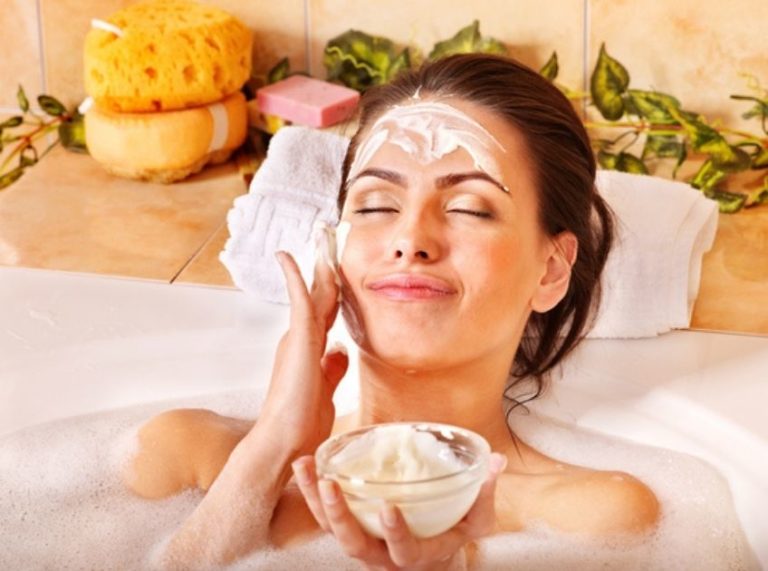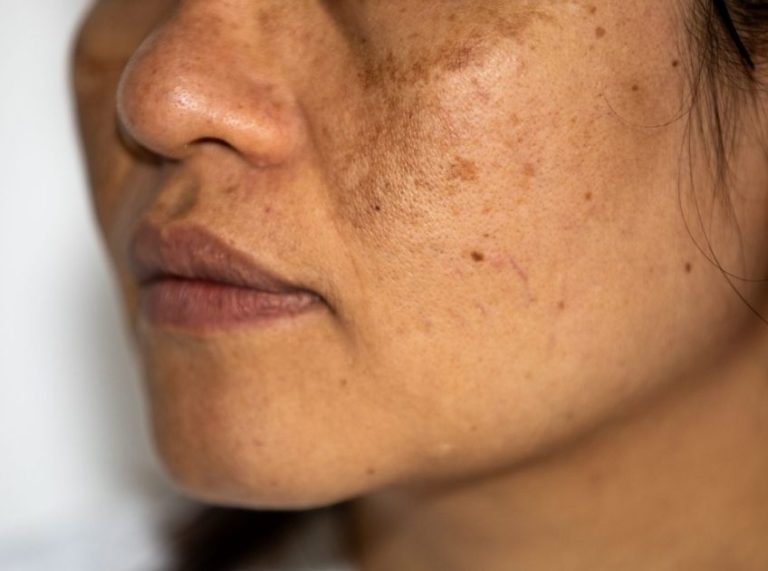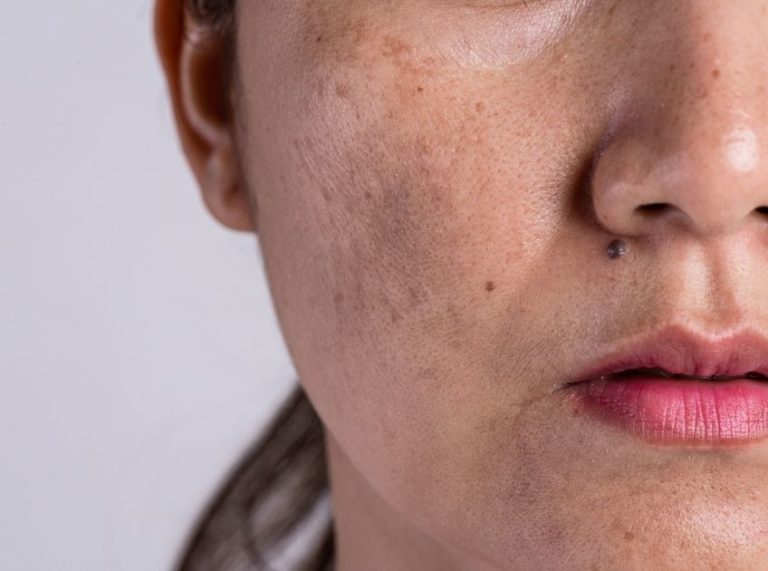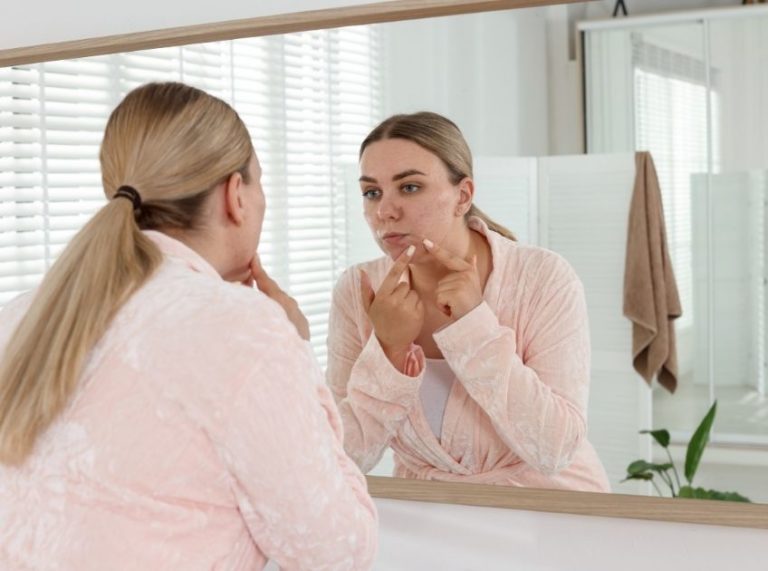
Important: This article is for informational purposes only. Please read our full disclaimer for more details.
When it comes to facial aesthetics, the nose often gets the most attention. With the rise of social media filters and contouring hacks, many people are now wondering: Can you reshape your nose with exercise? The idea of sculpting your nose without surgery sounds tempting, but how true is it?
In this expert guide, we’ll explore whether nose exercises work, debunk popular myths like the “toothpaste trick,” and break down your options—from natural techniques to medical procedures.
What’s the Hype Around Nose Reshaping?
The nose plays a central role in facial harmony, and it’s common for people to feel self-conscious about its size, shape, or symmetry. While rhinoplasty remains the most effective way to make permanent structural changes, the internet is filled with DIY nose reshaping exercises claiming to slim or lift the nose—no surgery needed.
But can pressing, pinching, or stretching transform your nose? Let’s investigate.
Do Nose Exercises Work? Let’s Get Real
The idea of nose exercises—often referred to as “nose yoga” or “facial workouts”—has gained popularity thanks to TikTok trends, beauty influencers, and viral YouTube videos. These exercises promise everything from lifting the tip of your nose to slimming its width or correcting asymmetry. But how much of this is fact, and how much is fiction?
What Are Nose Exercises Supposed to Do?
These routines generally involve:
- Pinching the nose tip repeatedly
- Pushing up the tip of the nose while smiling
- Massaging the nasal bridge or nostrils
- Stretching the upper lip to “lift” the nose
- Flaring nostrils in repetitions
The theory behind these exercises is that, by activating or toning the small muscles around the nose, you can reshape its structure over time. But here’s where the problem begins: the actual structure of your nose is mostly made of cartilage and bone—not muscle.
What Science Says
From a scientific and anatomical standpoint, nose exercises cannot change the shape, size, or angle of your nose in any permanent way.
Here’s why:
- Cartilage is not pliable like muscle: It doesn’t build or tone with movement. The cartilage gives your nose its shape, and it doesn’t grow or shrink through exercise.
- Facial muscles around the nose are minimal: While you can train muscles like the orbicularis oris (around the mouth), the nasal region has limited muscle mass to “work out.”
- There’s no clinical evidence: As of now, no peer-reviewed studies or dermatological associations endorse the idea that nose exercises result in any long-term reshaping.
According to Dr. Corey Maas, a board-certified facial plastic surgeon, “No amount of exercise or muscle manipulation will reduce a nose bump or lift the nasal tip. Cartilage doesn’t respond to workouts like other tissues do.”(1)
What You Might Notice Temporarily
Although nose exercises won’t physically reshape your nose, there are a few short-term changes some people may observe:
- Improved blood circulation: Just like facial massage, nose exercises can increase blood flow and give a momentary glow.
- Reduced puffiness: Gentle massage may temporarily reduce nasal swelling or water retention—especially if you suffer from allergies or sinus pressure.
- Placebo effect: You may feel like your nose looks different because you’re focusing on it more and becoming more aware of its angles and lines.
But these effects are superficial and temporary. The structure of your nose—its width, projection, and bone shape—remains unchanged.
Common Nose Exercises and Why They Don’t Work
Let’s break down a few of the most popular nose exercises and why they fail to deliver what they promise:
| Exercise | What It Claims to Do | Why It Doesn’t Work |
|---|---|---|
| Pinching the nose tip | Make the nose smaller | Pinching doesn’t affect cartilage size |
| Smiling with nose pushed up | Lift nasal tip | No muscle exists to “lift” the cartilage |
| Side-to-side nose massage | Straighten crooked nose | Can’t shift cartilage or bone alignment |
| Nose bridge tapping | Sharpen bridge | Tapping has no anatomical impact |
These actions might feel satisfying, like a gentle facial stretch, but the benefits stop there.
Are There Any Risks Involved?
Surprisingly, yes. Repeatedly pressing, pinching, or stretching your nose can lead to:
- Skin irritation or broken capillaries
- Inflammation or sensitivity
- Aggravation of existing sinus conditions
And in some cases, over-manipulation might even increase swelling instead of reducing it—making your nose appear puffier or red.
Final Verdict: Nose Exercises Can’t Reshape Your Nose
Despite what online trends suggest, there is no anatomical, dermatological, or surgical support for nose exercises as a method to alter your appearance. They cannot shrink, lift, or straighten your nose, no matter how consistent you are.
If you’re looking for real results, your best options are:
- Contouring with makeup (temporary, non-invasive)
- Non-surgical rhinoplasty (injectables like dermal fillers)
- Surgical rhinoplasty (for permanent change)
Toothpaste for a Smaller Nose? Why It’s a Myth
One popular online claim is that applying a mixture of toothpaste, garlic, apple cider vinegar, or ginger can reduce nose size.
Here’s why that doesn’t hold up:
- Toothpaste can irritate your skin but won’t shrink cartilage or bone.
- These ingredients may cause temporary redness or swelling, misleading you into thinking there’s a change.
- Long-term use may lead to irritation, dryness, or even chemical burns.
Bottom Line: There’s no scientific basis for using toothpaste or home concoctions to slim your nose. It’s purely cosmetic folklore.
Are There Any Natural Ways to Reshape Your Nose?
While you can’t permanently change the structure of your nose naturally, you can create the illusion of a more refined shape. Here’s how:
1. Contouring with Makeup
Strategic shading using bronzer and highlighter can slim the nose bridge or lift the tip. It’s safe, effective, and completely reversible.
2. Good Posture
Believe it or not, posture affects how your nose appears. Standing tall elongates your neck and makes facial features look more balanced.
3. Facial Massage
Lymphatic drainage around the nose can reduce puffiness and improve skin tone temporarily—but again, it won’t change bone or cartilage.
4. Hydration and Skin Care
A smoother, hydrated nose may appear sleeker, even if the structure stays the same. Exfoliate regularly and use a good moisturizer.
Surgical & Non-Surgical Options That Work
While nose exercises and home remedies may offer temporary visual tweaks, only professional medical interventions can permanently alter the shape and structure of your nose. Let’s break down both surgical and non-surgical solutions and what they truly offer.
1. Rhinoplasty (Traditional Nose Surgery)
What it is
Rhinoplasty(2)(3) is a cosmetic surgical procedure that alters the shape, size, or angle of the nose. It can also correct breathing issues caused by structural defects such as a deviated septum.
Types of rhinoplasty
Open rhinoplasty – Incisions are made at the base of the nose to access the bone and cartilage directly.
Closed rhinoplasty – All incisions are made inside the nostrils, resulting in no visible scarring.
What it can do
- Straighten a crooked nose
- Reduce the size of a large nose or nostrils
- Smooth out bumps or humps on the bridge
- Refine the nasal tip
- Correct asymmetry or deformities
Pros
- Permanent and dramatic results
- Can address both aesthetic and functional concerns
Cons
- Expensive (often ranges from $5,000 to $15,000+)
- Requires general anesthesia
- Downtime of 1–2 weeks and full recovery in 6–12 months
- Risk of side effects such as swelling, infection, or dissatisfaction with results
Best for
Those who want long-term structural changes or need correction for breathing problems.
2. Non-Surgical Rhinoplasty (Liquid Nose Job)
What it is
Also known as a liquid rhinoplasty, this procedure involves injecting dermal fillers (typically hyaluronic acid) into specific areas of the nose to create a more balanced or symmetrical appearance (4).
What it can do
- Fill in depressions or smooth out bumps
- Lift the nasal tip slightly
- Improve contour without altering the underlying structure
What it can’t do
- Make the nose smaller
- Fix major structural issues or breathing problems
Procedure details
- Takes about 15–30 minutes
- No downtime; most people resume normal activities the same day
- Results last between 6 to 12 months, depending on the type of filler used
Pros
- Non-invasive with immediate results
- Less costly than surgery (usually $600–$1,500)
- Minimal discomfort and no scarring
Cons
- Temporary results (maintenance required)
- Not suitable for major shape or size changes
- Risk of swelling, bruising, or filler migration
Best for
Individuals looking for minor corrections and those who want to try out a new look before committing to surgery.
3. Thread Lifts for Nose Contouring (Emerging Option)
What it is
A nose thread lift is a minimally invasive treatment that uses absorbable threads (usually made of PDO – polydioxanone) to lift and reshape the nose. The threads are inserted under the skin to create a lifted effect.
What it can do
- Slightly raise the nasal tip
- Improve definition along the bridge
- Offer subtle reshaping without cutting bone or cartilage
Results
- Temporary, lasting 12–18 months
- Threads dissolve naturally over time and stimulate collagen production
Pros
- Quick procedure with minimal downtime
- Less invasive than rhinoplasty
- No scarring
Cons
- Not widely available everywhere
- Results vary depending on the practitioner’s skill
- Not suitable for dramatic changes
Best for
Those wanting subtle enhancement with low commitment.
How to Choose the Right Option
Choosing between surgical and non-surgical nose reshaping depends on several factors:
| Consideration | Best Option |
|---|---|
| Want dramatic, permanent change | Surgical rhinoplasty |
| Prefer minimal downtime | Non-surgical rhinoplasty |
| Need to correct breathing issues | Surgical rhinoplasty |
| Looking for a temporary aesthetic tweak | Fillers or thread lifts |
| Budget-friendly alternative | Makeup contouring or fillers |
Always consult with a board-certified plastic surgeon or dermatologist to determine which approach is safest and most suitable for your specific facial structure and goals.
Frequently Asked Questions (FAQ’S)
Q1. Can nose exercises make my nose look smaller over time?
A. No. Nose exercises cannot alter cartilage or bone. While they may improve circulation or muscle tone around the nose, they don’t affect its size or structure.
Q2. Is it safe to try natural remedies like toothpaste or garlic for nose slimming?
A. No. These ingredients can irritate your skin or cause allergic reactions. They have no proven effect on nose size and should be avoided for this purpose.
Q3. What is the safest non-surgical way to improve my nose appearance?
A. Makeup contouring is the safest, quickest way to visually reshape your nose. For more lasting results, consider non-surgical rhinoplasty under professional supervision.
Final Thoughts: Reality Over Rumors
While the idea of reshaping your nose through simple exercises or natural remedies is alluring, it’s not grounded in science. Your nose’s shape is largely determined by genetics, and no amount of pinching, smiling, or garlic paste can change cartilage or bone.
That said, makeup techniques, healthy skincare, and posture can help enhance your nose’s appearance temporarily. And if you’re seriously considering a change, speak with a licensed medical professional to explore safe and effective procedures.

















